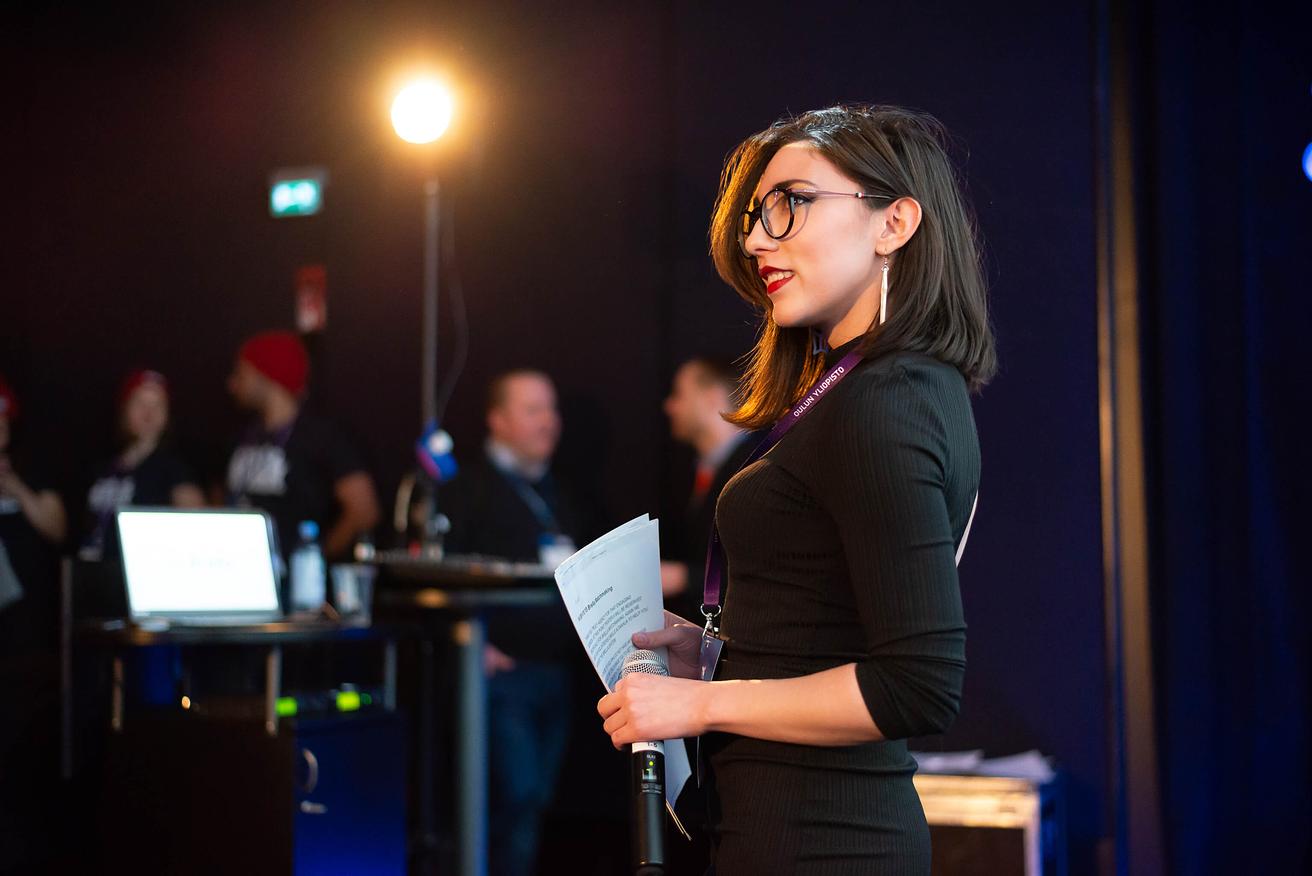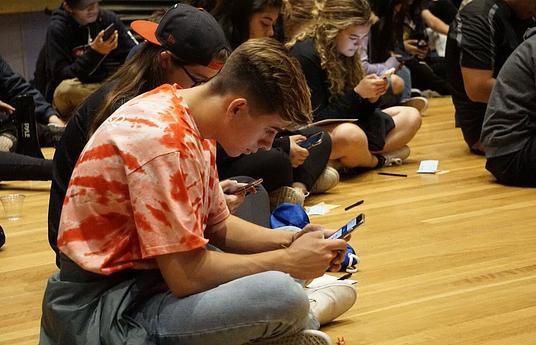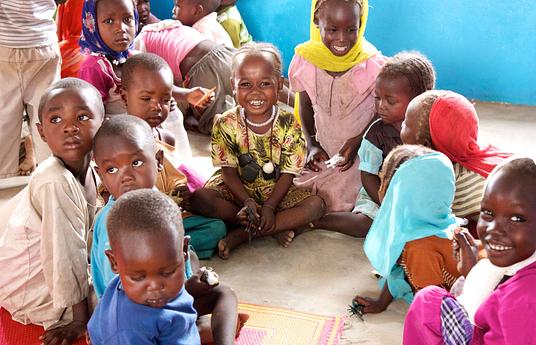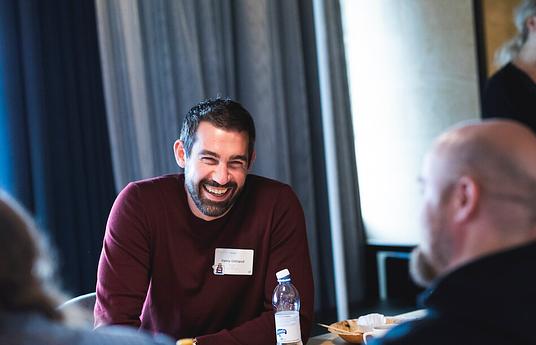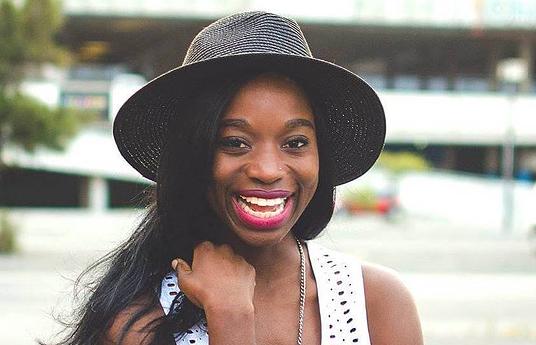We are happy to welcome a new addition to the HundrED Team, Mariah Eve O’Mara. Mariah is our new Head of Media based in our Helsinki office. The responsibility for Media was previously under the direction of Pukhraj Ranjan who remains Head of Community but will now lead our HundrED Connect, with a focus on growing our innovator network.
Tell us a little about yourself
My name is Mariah Eve O’Mara, I am originally from the United States but have been living in Europe for the past 5 years. I enjoy running and outdoor activities, although I’m not very good at them I am very enthusiastic! I also consider myself a professional karaoke singer - which is just one of the reasons I love Finland, as karaoke is so popular here.
I was born and raised in the Chicagoland area, I moved around a lot when I was younger but I never left the state of Illinois. By the time I graduated high school I had attended six schools. This gave me a unique perspective on how different schools can be, even those in the same state.
I got my undergraduate degree at the University of Illinois at Chicago in Business Marketing with a Minor in International Relations. During my studies, I had the opportunity to study abroad twice. I spent the summer of my sophomore year in India through a faculty-lead program exploring labour, food and gender in the Indian context. We travelled across southwestern Rajhastan working with various NGOs and visiting schools in rural villages. Upon my return to Chicago, I acquired an internship at buildOn an education-based non-profit focused on supporting at-risk youth in inner cities and building schools abroad.
In the spring of my junior year, I spent six months in Shanghai, China, at East China Normal University. Through the program, I obtained an internship at a sourcing company and learned about supply chain management and sourcing in China.
Why do you want to work at HundrED?
After I graduated from University I applied for a one-year work program teaching English in Spain. I was accepted and was placed at a public primary school in the centre of Madrid. I fell in love with the city, the school - and with teaching. I found that I really enjoyed the act of helping someone to learn. I left work every day filled with both exhaustion and joy. So, at the end of the year when my contract ended and the school offered to extend my placement for another year - I jumped at the chance.
However, after two years I felt the urge to do something different. I wanted to go back to school and learn more about pedagogy and reasoning behind global education policy. I knew I didn’t have the money to go to graduate school back in the US without burdening myself with undue debt. And at the time, Finland was receiving a lot of international attention for being a kind of educational utopia. So, I applied to the University of Oulu in Northern Finland and was excepted to the Education and Globalization Master’s Program.
Once there I immediately got very involved in the startup scene in Finland. I participated in and then organized several Startup Weekends. I helped to organize Polar Bear Pitching, even hosting the day-conference my second year. I started working at Startup Refugees and then went down to Helsinki to volunteer with Slush. These experiences coupled with my studies taught me the importance of entrepreneurship in education. I ‘learned by doing’ how to adapt to fit these roles.
I came across HundrED through the connections I made in the startup world. I was immediately drawn to the work they were doing and wanted to be involved so I pursued them. I admired the work they were doing to improve education by supporting innovations that were already happening in schools and helping them to spread.
Why should we change our schools?
The social, political, and economic fabric of society is changing. As a result, the young people of today are experiencing a drastically different world than that of their parents’ generation. COVID-19 has only exacerbated this fact, it has highlighted the need to change the way we think about education and made it painfully obvious how fast this change needs to happen.
The fact is that school, as an institution, has changed very little over the years. In spite of the rapid and fundamental changes in the world economic order, that were happening even before the COVID-19 crisis. These changes have also spurred radical changes in the perceived nature of society leading to an increased recognition that the skills needed in today’s society are markedly different than ever before.
All this coupled with globalization, climate change, and the ongoing threat posed by this global pandemic point to an increasingly small and interconnected world where small changes have massive and far-reaching effects. These fundamental changes point to a need to educate a generation that is flexible, adaptive, and comfortable with change.
Truly exceptional schools have transformative leaders which is exactly what is needed to break through the current system and truly transform schools, however, in most places teachers are not given the freedom to do this.
The difficulty is designing a system that leaves room for transformative leaders who can evolve as they need to continually perform to meet outdated standards. We need to redesign the system so that it is built around the child, as opposed to being designed around the status quo.
Why is innovation in education crucial today?
The importance of innovation in education goes back to the idea of preparing students for an uncertain future by giving them the tools they need to be adaptive and flexible, able to navigate between changing contexts and settings. It is the idea that institutions themselves need to be more flexible, so as to be able to adapt, be it to new technology, ideologies, theories, or a new global reality.
Schools that can do this are poised to do well in the future. Schools need to engage in activities that force teachers and students to look critically at the material being taught. It is only by creating a school culture that encourages and supports self-criticality that students and staff will feel comfortable coming forward when issues arise. It is only by allowing students and teachers the freedom to innovate that we secure the future of humanity.
The guiding principle for any principal should always be students first. This means a sustained investment of both time and energy into innovations that support the health and well-being of all students. Each generation of students experiences inherent differences in the challenges they face. Innovation in education is crucial because without it we cannot expect students to be prepared to face the challenges of tomorrow.
Name three HundrED innovations you love.
#ICANHELP - Their proactive peer to peer curriculum both educates and empowers students. I think particularly now, students digital well being is so important. I especially like how it not only involves students but empowers them to take the lead in building a positive culture both online and offline.
Fuji Kindergarten -I love how this innovation reimagines the physical boundaries of a school. It was built with children at the heart of its design. Children are encouraged to interact with their environment and are surrounded by nature. It is an inspiration for future schools looking to enhance their learning environments so that they are best suited for their children.
Little Ripples - I wrote my master’s thesis on asylum seekers and refugees living in Finland. So, I’ve done quite a bit of research on issues that impact displaced people. iACT’s Little Ripples program is a great example of an innovation that desperately needs to spread. There are an estimated, 87 million children under age 7 who have spent their entire lives in conflict zones. The Little Ripples Program is grounded in play-based education and incorporates social-emotional learning, empathy development, positive behaviour management, peacebuilding, and mindfulness. It was co-created by refugees and includes best-practices for those who have experienced trauma and hardships.
Contact Information
Email: mariahomara@hundred.org
LinkedIn: mariahomara
